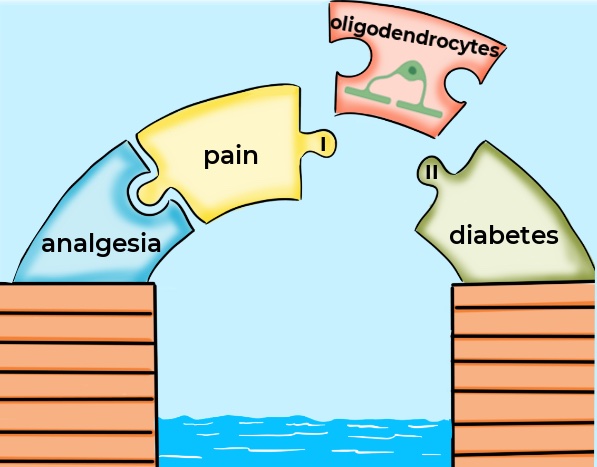Projects

|
I. How do perturbations of CNS myelin homeostasis affect the development of neuropathic pain symptoms? The role of oligodendrocytes in neuropathic pain development and progression is poorly understood. As mentioned in the introductory tab several of the risk factors for the development of painful diabetic neuropathy have been shown to oppose oligodendrocyte precursor cell (OPC) differentiation. Furthermore, the majority of disease-associated genes are expressed in oligodendrocytes, with some of them having documented effects on oligodendrocyte lineage progression. By combining genetic and pharmacological interventions with behavioral analysis we aim at characterizing how demyelination (Ia), impaired OPC differentiation (Ib) and remyelination (Ic) impact the development and progression of neuropathic pain symptoms in a mouse model of diabetic neuropathy. |
II. What is the effect of diabetes on the oligodendroglial lineage?
Diabetes, except from its well-documented effect on peripheral nervous system myelin and Schwann cell homeostasis, is also affecting central nervous system (CNS) myelin integrity and function. Hints from electron microscopy point towards remodeling of oligodendrocytes in spinal cord and brain, with increased heterochromatin clumps present in diabetic samples. Furthermore, CNS myelin lipidomic profile analysis reveals profound dysregulation in several obesity-induced diabetic mouse models that is associated with defects in axon-myelin unit. There is a need for detailed characterization of the adaptations occurring in oligodendrocytes and CNS myelin due to the metabolic imbalances associated with diabetes. Towards that goal, we aim at characterizing the transcriptional (IIa) and functional (IIb) adaptations of the oligodendroglial lineage in diabetic mouse models. |